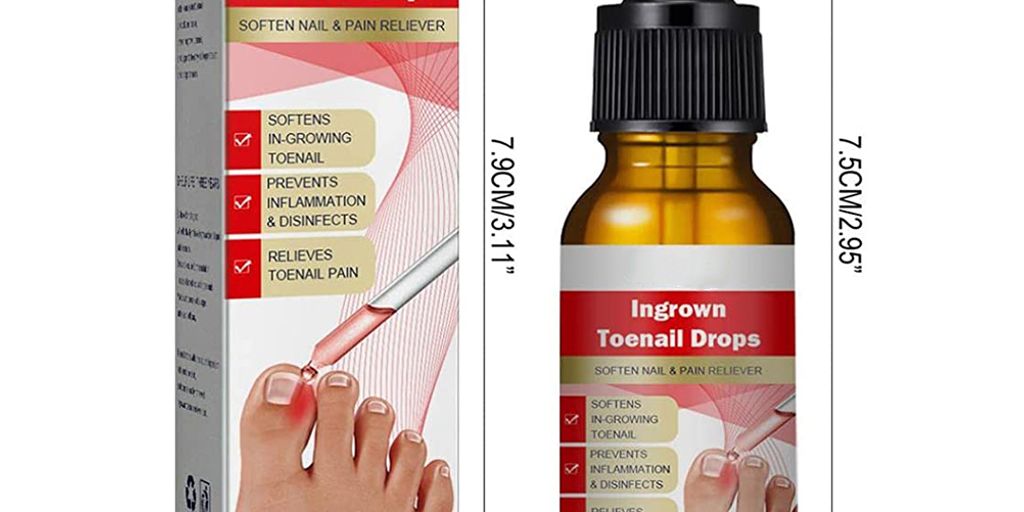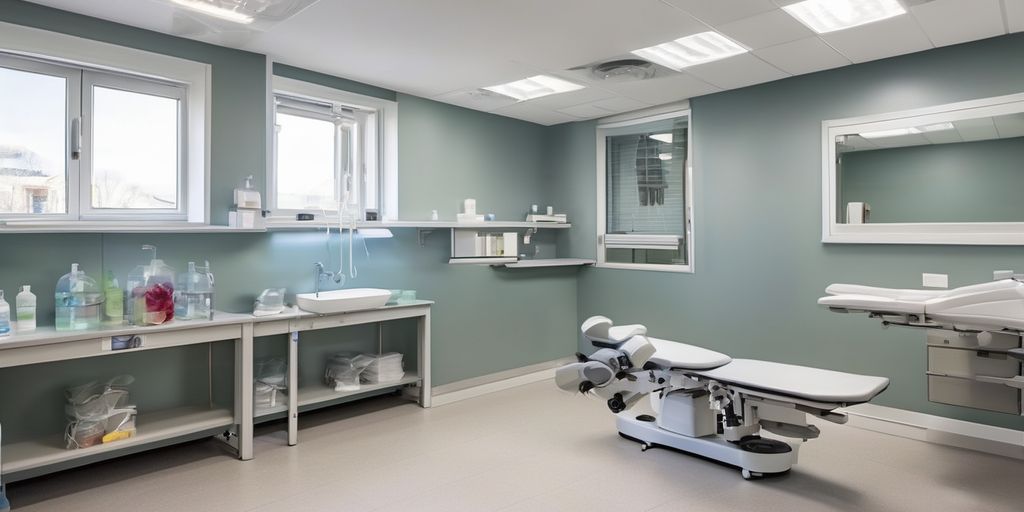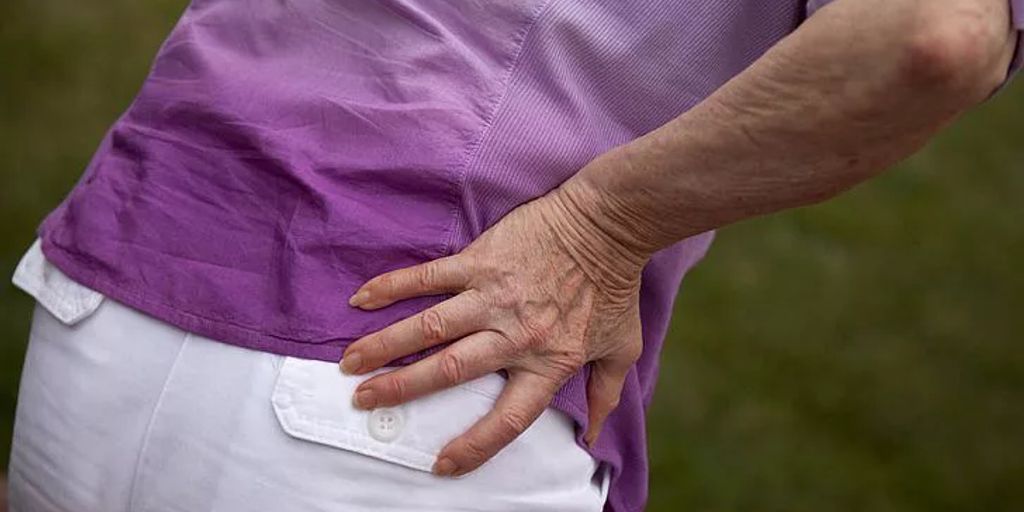
Ingrown toenails can be really uncomfortable and annoying. They happen when the edge of your toenail grows into the skin next to it. This can cause pain, redness, and even infection. Luckily, there are ways to treat and prevent ingrown toenails at home. In this article, we’ll go over how to spot an ingrown toenail, some home remedies to try, and tips to keep them from coming back.
Key Takeaways
- Recognizing the symptoms of an ingrown toenail early can help prevent complications and more serious infections.
- Simple home remedies like soaking your foot in warm water and using over-the-counter pain relievers can be very effective.
- Proper nail trimming and wearing the right shoes can help prevent ingrown toenails from happening in the first place.
Recognizing the Symptoms of an Ingrown Toe Nail
Common Signs and Symptoms
An ingrown toenail occurs when the edge of the toenail grows into the surrounding skin. [Symptoms of an ingrown toenail](https://www.sheboyganfootcare.com/blogs/item/251-how-to-know-if-you-have-an-ingrown-toenail) can consist of redness, swelling, and tenderness along the nail border. In severe cases, pus or drainage may occur. You might also notice that the affected area is painful to touch and appears different from your other toes.
When to Seek Medical Attention
While many ingrown toenails can be managed at home, there are times when professional help is necessary. If you experience severe pain, significant swelling, or signs of infection such as pus or a foul odor, it is crucial to consult a healthcare provider. Persistent symptoms despite home treatment also warrant medical attention.
Potential Complications
Ignoring an ingrown toenail can lead to more serious issues. Potential complications include chronic pain, infection, and even the formation of an abscess. In some cases, the infection can spread to the underlying bone, leading to a condition known as osteomyelitis. Early recognition and treatment are key to preventing these complications.
If you notice any signs of infection or if the condition does not improve with home care, it is important to seek medical advice promptly. In Singapore, healthcare providers are well-equipped to handle such cases efficiently.
Effective Home Remedies for Ingrown Toe Nails
Soaking in Warm Water
Soaking your foot in warm, soapy water for about 15-20 minutes can help reduce swelling and ease the pain. Adding Epsom salts to the water may provide additional relief. This simple method can be very effective in treating an ingrown toenail at home.
Using Over-the-Counter Pain Relievers
Over-the-counter pain relievers like ibuprofen or acetaminophen can help manage the pain associated with an ingrown toenail. These medications can reduce inflammation and make it easier to go about your daily activities.
Applying Antibacterial Ointments
Applying an antibacterial ointment to the affected area can help prevent infection. Make sure to cover the toe with a bandage after applying the ointment to keep it clean and protected.
If you notice any signs of infection, such as increased redness, swelling, or pus, it’s important to seek medical attention promptly.
Preventing Ingrown Toe Nails
Proper Nail Trimming Techniques
To prevent ingrown toenails, it’s crucial to trim your nails correctly. Cut your nails straight across and avoid rounding the edges. This helps the nail grow in the right direction and not into the skin. Use clean, sharp nail clippers and avoid cutting nails too short, as this can increase the risk of ingrown nails.
Choosing the Right Footwear
Wearing the right shoes and socks is essential. Shoes that are too tight or too loose can cause pressure on your toes, leading to ingrown toenails. Opt for shoes with a wide toe box and ensure your socks are not too tight. If possible, wear open-toed shoes or sandals to reduce pressure on your toes.
Maintaining Foot Hygiene
Good foot hygiene is another key factor in preventing ingrown toenails. Wash your feet every day, dry them thoroughly, and use a foot moisturizer. You can also use a foot file or pumice stone to remove hard or dead skin. Keeping your feet clean and moisturized helps prevent infections and other foot problems.
Regular foot care routines, such as proper nail trimming and choosing the right footwear, can significantly reduce the risk of ingrown toenails. Orthospineworks recommends these practices to maintain healthy feet.
When to Consult a Healthcare Professional
Signs of Infection
If you notice any signs of infection, it’s crucial to seek medical attention immediately. These signs include increased pain, discharge of blood or pus, redness, warmth, swelling, throbbing, or a foul odor. When in doubt, it’s better to be safe than sorry. This is especially important if you have any medical conditions that raise your risk of complications.
Chronic or Severe Cases
For chronic or severe cases of ingrown toenails, professional care is often the best or only choice. If your condition doesn’t improve within a few days of home treatment, it’s time to consult a healthcare professional. An Orthopaedic Surgeon can provide the appropriate diagnosis and care.
Professional Treatment Options
Professional treatment options may include minor surgical procedures to remove part of the nail or to drain any pus. Your healthcare provider may also prescribe antibiotics if an infection is present. Don’t hesitate to consult a healthcare professional or a podiatrist for appropriate diagnosis and care.
If you experience any symptoms of an ingrown toenail, do not hesitate to consult a healthcare professional or a podiatrist for appropriate diagnosis and care.
Conclusion
Dealing with an ingrown toenail at home can be simple if you follow the right steps. By soaking your foot, keeping the area clean, and using over-the-counter treatments, you can often relieve the pain and help the nail grow out properly. However, if you notice signs of infection or if the pain persists, it’s important to seek medical help. Remember, proper nail care and wearing well-fitting shoes can prevent ingrown toenails from happening in the first place. Taking these precautions can keep your feet healthy and pain-free.
About The Author

Dr Gamaliel Tan
Orthopaedic Surgeon Specialising in Spine Surgery in Singapore
Dr Gamaliel Tan is a qualified and experienced spine specialist in Singapore with over 25 years of experience in designing and providing effective solutions for different orthopaedic problems. He specialises in spine surgery and has experience in endoscopic spine surgery and motion preservation spine procedures (artificial disc replacements).
He is a member of the Singapore Spine Society and AOSpine Society.





